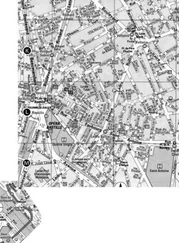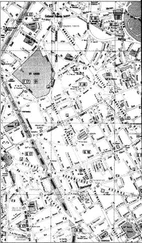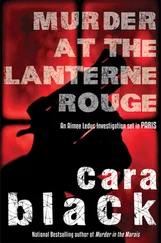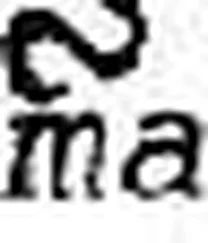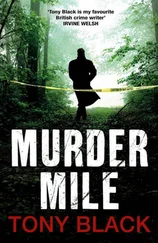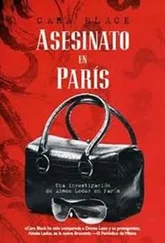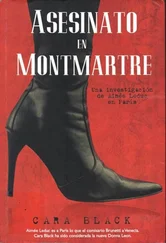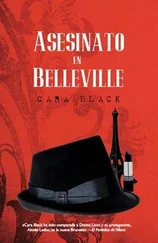“Haader-Rofmein? Maybe, I’m not sure. He’d had a dry spell,” Christian Figeac said, looking down. He knocked cigar ash into the Ricard ashtray. The ashes missed and particles floated onto his pants. “And then I heard him working.”
“Working on what?”
“He never talked about what he wrote. Taboo. A jinx, he said.”
Aimée thought she could see sadness in Christian Figeac’s eyes. And a kind of defeat. Had he felt sidelined, growing up in the shadow of famous parents who’d been obsessed by the unborn child? Aimée felt sorry for this man.
“Why would your father take his life now?”
Instead of answering her, Christian Figeac shrugged. “Late at night,” he said, his long lashes fluttering, “the time Papa used to work in the breakfast room, I think I can still hear him pounding on typewriter keys. Strange, because he wrote everything in longhand first. I open the door and it’s empty, of course, but it’s like he’s trying to tell me something.”
“Rational consideration would preclude that, Monsieur Figeac,” she said.
Christian Figeac was delusional but maybe she could turn it to her advantage. Find the link to her mother, figure out what Jutta Hald had really wanted. “If you’re the literary executor for your father’s estate,” she said, “may I go through his papers?”
Christian Figeac pulled a crumpled paper from his jacket pocket and smoothed it out on the marble-topped cafe table.
“How much?” he asked, writing her name on the check.
“For what? My field is computer security, data recovery for firms and corporations.”
“Someone’s stalking me,” he said, his eyes huge. “Twenty thousand do for a retainer?”
“A retainer for what?”
“Find out who’s stalking me.”
That got her attention. She leaned back against the banquette. If she took his check maybe she could pay the rent as well as find out about her mother.
Outside the cafe window, a Pakistani man with a pushcart full of cloth rolled his eyes at a burly man making deliveries whose truck blocked the street.
“I’ll take the job on the condition that I can have access to your father’s papers,” she said. “They may contain information about my mother or Jutta Hald.”
“ Tant pis but I’ve never heard of them.”
“Think back. Didn’t an older woman, Jutta Hald, come to your …?”
“But it’s so like something my father would do,” he interrupted. “I’ve even heard their noises.”
“Noises?” Aimée felt like standing up. “Is that why you think someone’s stalking you?”
“The funny thing was, when I checked in the morning, the room had been disturbed. Discreetly, but I could tell.”
“How’s that?”
“The dust, of course.” he stared at Aimée. “Footprints in the dust.”
AIMÉE AND Christian Figeac reached the door of 107, rue de Cléry, a block away. The building occupied the corner of the narrow street where it met rue des Petits Carreaux. The inner courtyard, with ivy-covered facades and deep balconies, seemed like another world, an oasis far removed from the hookers on Saint Denis, from the Metro and the bus exhaust.
Inside the tall-ceilinged apartment, once an industrial workshop she figured, stood a few rattan café-style chairs. Apart from the formal dining room, with its long table, the place had few furnishings. In the front of the atelier were huge period windows encased in dark green iron, overlooking the rooftops across the narrow street.
Christian Figeac’s face was a mask, yet anxiety emanated from him.
“Something wrong?” Aimée asked.
He tore out of the room and rushed down the hallway.
Aimée followed.
“Idrissa, Idrissa, I’m back,” he shouted.
By the time she’d caught up with him, he was leaning against the wall of the dark-timbered kitchen.
“Weren’t you going to show me …”
“She’s gone,” he interrupted.
“Who’s gone?” Aimée asked, looking around. A blue iron La Cornue stove filled a third of the kitchen.
“My girlfriend, Idrissa. Idrissa Diaffa,” he said. “Her bags, her things, her prints gone from the walls.”
Piles of dishes, encrusted with dried food, filled the porcelain sink. A pot of turmeric-peanutty-smelling stew sat on the cook-top.
“I’m sorry, but we really need to continue talking about your father’s work.”
“After I sold the apartment, we were going to invest in Gouée, that island in Senegal,” he said, his tone wistful. “She’s from there.”
Then he sniffled and his head drooped. Like a beaten dog, Aimée thought. He wiped his runny nose with his jacket sleeve.
“Anyway, I must get rid of this museum,” Christian Figeac said. “Sell it.”
He seemed to gather himself together. Had this happened before, she wondered, or was he used to being abandoned? Aimée noticed a dark wood-paneled room off to the right. The room was sealed—protected from trespassers—with glass. Women’s clothes were strewn on the bed, leopard jumpsuits and fringed vests. He followed her gaze.
“That was my mother’s room. Le Palais de Nostalgie , I call it, like a shrine. Papa wouldn’t let it be touched.”
The ghoul factor, she thought. Someone would want this apartment just for that … not to mention the location.
She noticed the scuffed woodwork and cobwebbed corners.
“Do you live here?”
“Most of the time,” he said, scratching his arm. He kept his jacket on in the musty apartment. “But I haven’t been back since I heard the typewriter.”
“The typewriter?”
“Papa had a typewriter.”
What was this about? He knew his father was dead. It was hot and sticky and she felt cranky.
“Why don’t you show me your father’s room, tell me about his work,” she said, keeping her voice level.
“There’s nothing to see,” he said. “Take my word for it.”
Christian seemed intent on being contradictory. Something sad clung to him, like a shroud.
“Sorry, all this must be difficult,” she said. “And I understand it’s painful but I can’t help if you don’t let me see it.”
“The room hasn’t been cleaned.” He stood, hesitant.
“No problem.” Even better, but she didn’t say it.
In the front hallway, Christian Figeac took a ring of old-fashioned keys from a hook. He tried several before one grated in the lock, which opened with a loud click that echoed in the parquet-floored entrance.
The twenty-foot double doors swung back to reveal a rectangular breakfast room, spacious and light due to floor-to-ceiling windows.
“Doesn’t look used much.”
“I haven’t stepped inside since …” He paused. “The cleaners should be here soon.”
“Maybe your girlfriend …”
“Never,” he said. “She didn’t like rooms where spirits linger.”
“Lingering spirits?”
“That’s why I curse him,” Christian Figeac said. His voice had slowed. “We told the newspapers Papa took his life in bed. But he shot himself here.” He pointed to the long panel of a desk, in the middle of the room. Chocolate-looking smudges covered the wallpaper behind the chair.
Poor Christian Figeac. Why would a father let his son discover that?
“Right at his desk,” he said. “Couldn’t be bothered to do it in the park. Left his brains on the wall for me to find.”
Like Jutta Hald.
“Did he leave a suicide note?
“Just ‘Goodbye’ and a Mallarme poem on the typewriter. One my mother loved.”
Every poem has an unwritten line. In this case, Aimée thought, a tragic one.
She thought again of Jutta Hald.
“Sorry to ask, but was he holding the gun?” It would have had to be a large caliber for a bullet to cause splatter like that.
Читать дальше


